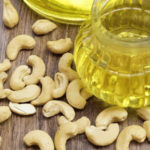Incorporating foods rich in essential vitamins and nutrients is key to maintaining liver health and preventing liver diseases such as fatty liver. Let’s explore the types of vitamins that contribute to liver function and help keep this vital organ healthy.
1 Vitamin E
Vitamin E is essential for the proper functioning of many organs in the body, including the liver. As a powerful antioxidant, it helps combat free radicals that can cause damage to the liver and other organs.
Scientific studies have confirmed the benefits of vitamin E for liver health. A notable study in 2014 showed that after 96 weeks of vitamin E supplementation, patients with fatty liver disease experienced significant improvements in inflammation and a reduction in liver fat, while the rate of liver cell death was also effectively controlled.
Vitamin E is found in many foods, including plant-based oils such as wheat germ oil and sunflower oil, as well as in supplement form. Some vitamin E-rich foods include avocados, nuts, seeds, and spinach.
While reasonable supplementation of vitamin E can benefit liver health by reducing liver inflammation and lowering fat levels, it is important to note that excessive intake (around 800-1000mg per day) may lead to adverse effects such as bleeding and thinning of the blood.
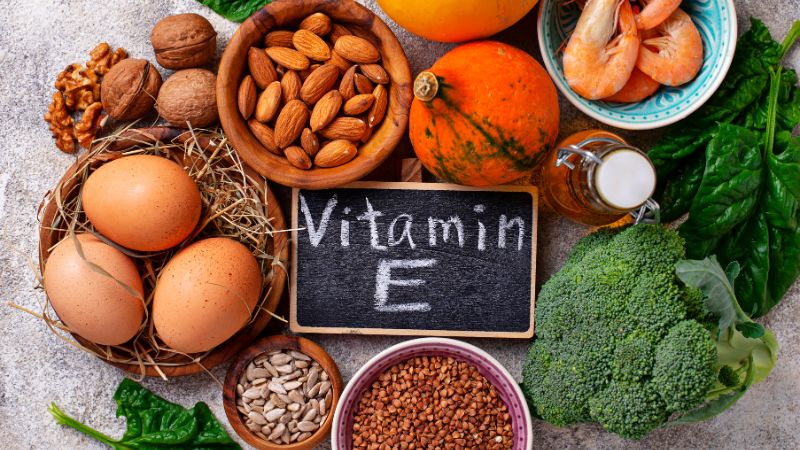 Vitamin E
Vitamin E
2 Vitamin K
Vitamin K plays a crucial role in blood clotting and is used to minimize the risk of bleeding in the treatment of liver disease. However, the benefits of vitamin K extend beyond this.
Modern scientific research has demonstrated the significant advantages of vitamin K for liver health. Even with low doses, vitamin K supplementation can aid the body in effectively producing antibodies, thereby promoting the restoration of liver function.
While there is no research indicating liver damage from high doses of vitamin K, long-term use is generally not recommended. Vitamin K is typically used when there is a high risk of bleeding. The recommended daily intake of vitamin K is 120 mcg for men and 90 mcg for women.
Foods rich in vitamin K include broccoli, kale, spinach, cabbage, and Brussels sprouts.
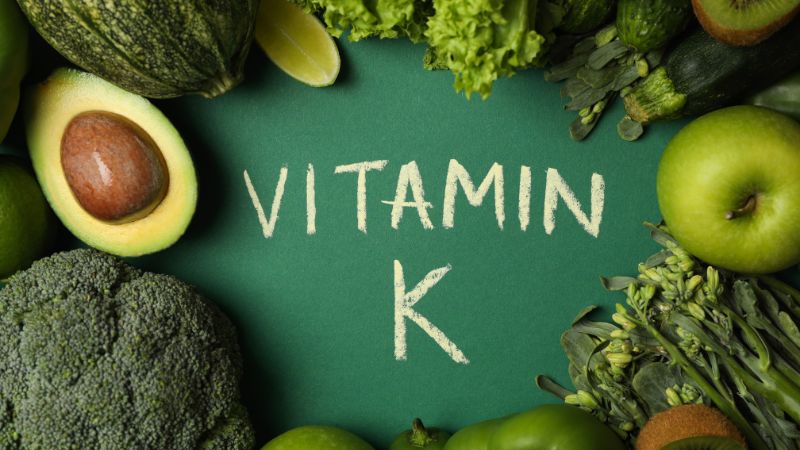 Vitamin K
Vitamin K
3 Vitamin D
Vitamin D plays a vital role in preventing liver inflammation and metabolic disorders that affect liver function. Known as the “sunshine vitamin,” vitamin D aids the body in absorbing calcium, an essential nutrient for strong bone development.
Osteoporosis is a common complication of chronic liver disease, weakening bones and increasing the risk of fractures. Vitamin D deficiency can exacerbate this complication.
Foods rich in vitamin D include salmon, tuna, egg yolks, beef liver, and certain types of mushrooms.
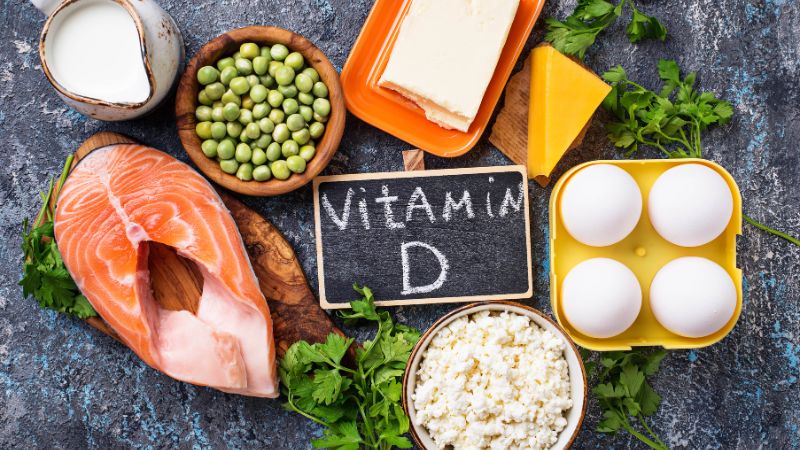 Vitamin D
Vitamin D
4 Vitamin B
According to scientific research, B vitamins are crucial for maintaining a healthy liver, including the ability to reverse liver inflammation. Several B vitamins, particularly vitamin B12 and folic acid (B9), have been shown to improve liver health in individuals with fatty liver disease.
When the liver is damaged, the levels of vitamin B12 in the body tend to decrease. Nutritionists recommend a diet rich in B vitamins to reduce and even reverse early-stage liver disease symptoms.
Vitamin B-rich foods include chicken, beef, liver, eggs, and green leafy vegetables.
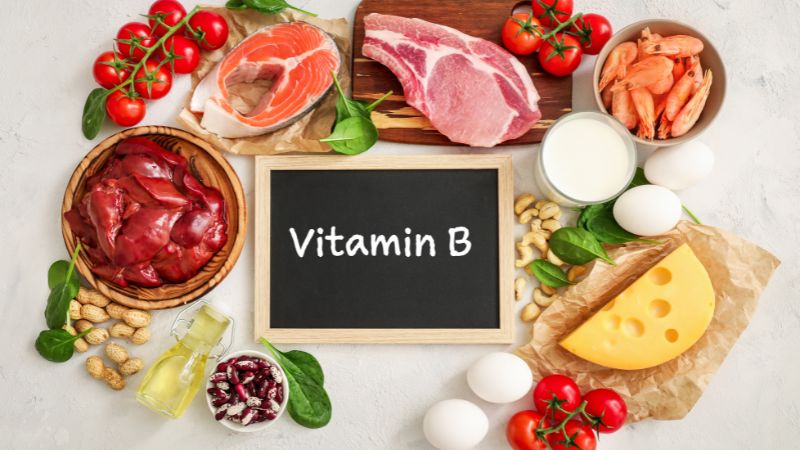 Vitamin B
Vitamin B
5 Omega-3 Fatty Acids
Omega-3 fatty acids have been proven to effectively support the treatment of non-alcoholic fatty liver disease by reducing the overall amount of fat accumulation in the liver. Additionally, omega-3 helps prevent liver fibrosis and inflammation, protecting the liver from severe damage and dangerous complications such as cancer or cirrhosis.
Foods containing omega-3 include walnuts, soybeans, shrimp, flaxseed oil, nuts, and fatty fish.
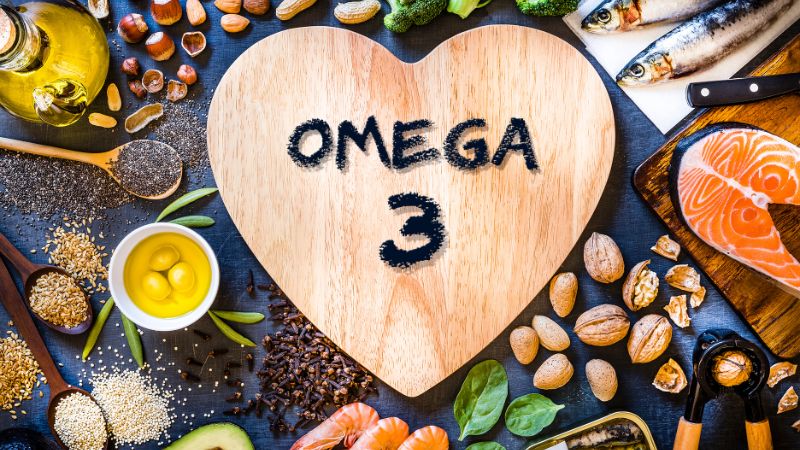 Omega-3 Fatty Acids
Omega-3 Fatty Acids
In conclusion, vitamins B, D, E, K, and Omega-3 fatty acids play essential roles in maintaining a healthy liver and supporting the treatment of liver diseases.
Source: Sức khỏe và Đời sống Newspaper
Uncovering the Benefits of Eye Massage: 3 Unexpected Effects
Do you want to know how to protect your eyes and eyesight with simple massage techniques? Recent research has revealed that daily eye massage can provide a number of unexpected benefits to those looking to maintain healthy eyes and vision. Keep reading to find out more about the effects of eye massage and some simple exercises!
Should 20-Year-Olds Use These Top 5 Moisturizers and Benefit from Them?
As your twenties approach, it can be a daunting task to find the right moisturizer to keep your complexion looking beautiful and youthful. Don’t worry – we’re here to help! We’ve compiled a list of the top 5 moisturizers that promise to boost your skin’s hydration and leave it looking its best. Join us for all the tips and tricks to make sure your skin stays healthy and radiant throughout your twenties.




























